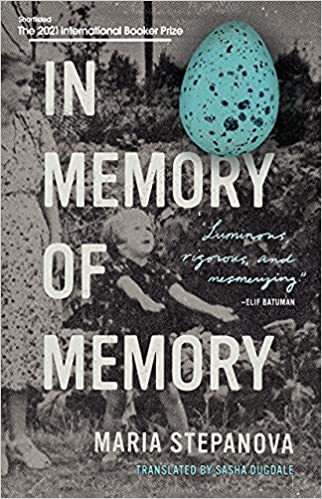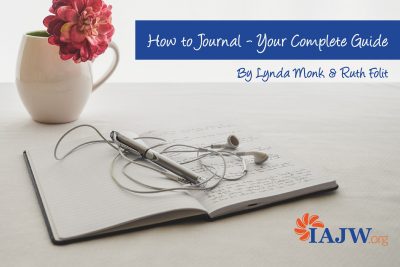I begin my day by journaling about my dreams and whatever those reflections lead to. Poems can begin that way too. It’s a beautiful threshold space, in between dreaming and waking.
When I offer a writing circle via Zoom on Thursday, June 3rd we’ll begin with a poem by Lorna Crozier: “A Good Day to Start a Journal.” From there we’ll write a journal entry about our day and move onto reading poems to inspire our own practice of “The Poetry of Presence.”
The writing circle is from 10 a.m. to 12 noon Pacific time on Zoom. I’m used to offering writing circles in the summer and this way, via Zoom, you can join wherever you may be. The fee is $45 payable by e-transfer or cheque. You can get in touch with me at creativity@maryannmoore.ca for further information and to register. Or have a look under “Poetry Circles.”
 Recently, I began reading a book called In Memory of Memory by Maria Stepanova translated from the Russian by Sasha Dugdale (Book*hug Press, 2021) in which Stepanova writes of her late Aunt Galya who kept “countless used notebooks and diaries. She’d kept a diary for years; not a day passed without her scribbling a note, as much a part of her routine as getting out of bed or washing.”
Recently, I began reading a book called In Memory of Memory by Maria Stepanova translated from the Russian by Sasha Dugdale (Book*hug Press, 2021) in which Stepanova writes of her late Aunt Galya who kept “countless used notebooks and diaries. She’d kept a diary for years; not a day passed without her scribbling a note, as much a part of her routine as getting out of bed or washing.”
A diary can be kept as a “working tool” as Stepanova notes in relation to writer Susan Sontag. “Notebooks are an essential daily activity for a certain type of person, loose-woven mesh on which they hang their clinging faith in reality and its continuing nature. . . a notebook is a series of proofs that life has continuity and history, and (this is most important) that any point in your own past is still within your reach.”
Stepanova’s Aunt Galya made note of “daily occurrences, recorded with astonishing exactness, and with astonishing opacity. The diaries documented the time she got up and when she went to sleep, the television programs she’d watched, the number of phone conversations she’d had, who they’d been with, what she’d eaten, whatever else she’d done.”
These diaries weren’t reflections of an inner life and yet they seem to indicate a type of companionship or witness: this is what I did, this is what I will do, all proof I’m still here. It feels to me like a presence practice, the chronicling of the ordinary things in one’s day. Until her dying day, Aunt Galya wanted the diaries and notebooks close by even if simply, to touch them.
From October 11, 2005 [excerpted from “Someone Else’s Diary” in In Memory of Memory]
I rang the clinic. Ira from Social Services, and Yura in the evening. Watched television and tidied all the washing on the chair. Went to bed at 11:30 p.m.
Hot day. I wore the skirt Tonya got me. “Dreary sort of life, of no use to anyone,” as you might say. Tea in the afternoon, coffee in the evening. No appetite whatsoever.
 I’m a member of the Journal Council of the International Association for Journal Writing (IAJW) and have a couple of resources available for sale on the IAJW website. There are also many complimentary resources on the site, such as this blog article: How to Journal: Your Complete Guide to the Benefits of Personal Writing, which can be found here: https://iajw.org/how-to-journal-complete-guide/
I’m a member of the Journal Council of the International Association for Journal Writing (IAJW) and have a couple of resources available for sale on the IAJW website. There are also many complimentary resources on the site, such as this blog article: How to Journal: Your Complete Guide to the Benefits of Personal Writing, which can be found here: https://iajw.org/how-to-journal-complete-guide/
I suggest you have a look at all the IAJW has to offer. You can become a member or sign up for the newsletter which offers all sorts of inspiration for your journaling practice. I feel honoured to be one of the Journal Council members as my fellow writers on the council, have inspired me for many years.
In 1980 when I lived in Bowmanville, Ontario I wrote a column on Durham Region history for the Toronto Star. I put some of those articles into an engagement calendar I self-published called Durham Diary 1980. I still have my mother’s copy in which she recorded events and observations
March 8, 1980
M.A. and children came. It was great to see them. Rusty working as usual. Started to snow about 1:30 and they left at 3. Terrible drive home. Took 3 hours. We went to the Greens. Not very good & rather dull.
March 9, 1980
Guess what I did today?? Did the laundry – what else. This is called living? Hans will be home this week coming so no Margot.
Rusty was my husband at the time. Margot was my mother’s friend who was a great help to her (“really is my salvation”) as Mum was adjusting to an artificial leg which was extremely painful. She was also suffering from chest pains and had heart surgery the week of March 17, 1980. She has filled in “TGH” on many of the days . She crossed off several weeks in the calendar when she was at West Park Convalescent Hospital in Toronto.
As for poetry that begins in a journal, there is a difference between the two i.e. the journal entry and the crafted poem. Each word matters in the poem.
Jane Hirshfield says the difference between a journal entry and a poem is “the difference between a poet’s seeing and poetry’s seeing, and hearing, speech. One may help make the other possible, but they are not the same, in kind or intention – and the distinction exists because poetry itself, when allowed to, becomes with us a playable organ of perception, sounding out its own form of knowledge and forms of discovery. Poems do not simply express. They make, they find, they sound (in both meanings of that word) things undiscoverable by other means. “ (Ten Windows: How Great Poems Transform the World, Knopf, 2015)
I can see that journal excerpts whether my own or someone else’s such as my mothers’s, can make their way into a poem with some introspection and perhaps new discoveries on the part of the poet and from the poem itself.
The only way to tell you is to write
this down, our lives a journal
with notes about the weather, perhaps
a grocery list and appointments never kept
because the sparrows sing for seeds
in our apple tree, and the spider
at the centre of her web demands
your poet’s eye to hold her still.
from “A Good Day to Start a Journal” by Lorna Crozier
in The Blue Hours of the Day: Selected Poems (McClelland & Stewart, 2007)

Good Morning Mary Ann,
I am truly interested in your writing group/ poets corner.
I have a love of poetry, and many stories to tell.
My mother was a beautiful soul she wrote poetry in Broad Scots. and we were brought up with Rabbie Burns, second nature to us. , Our daughter is a writer and , playright. I have journaled off and on also I keep a gratitude journal.
Rebecca Garber, recommended you to me.
May i be part of the group.
Look forward to hearing from you.
In Gratitude, June Venters Clark
Thank you for writing June. I look forward to connecting with you through our mutual friend. I’ve sent you an email about the upcoming writing circle on The Poetry of Presence.